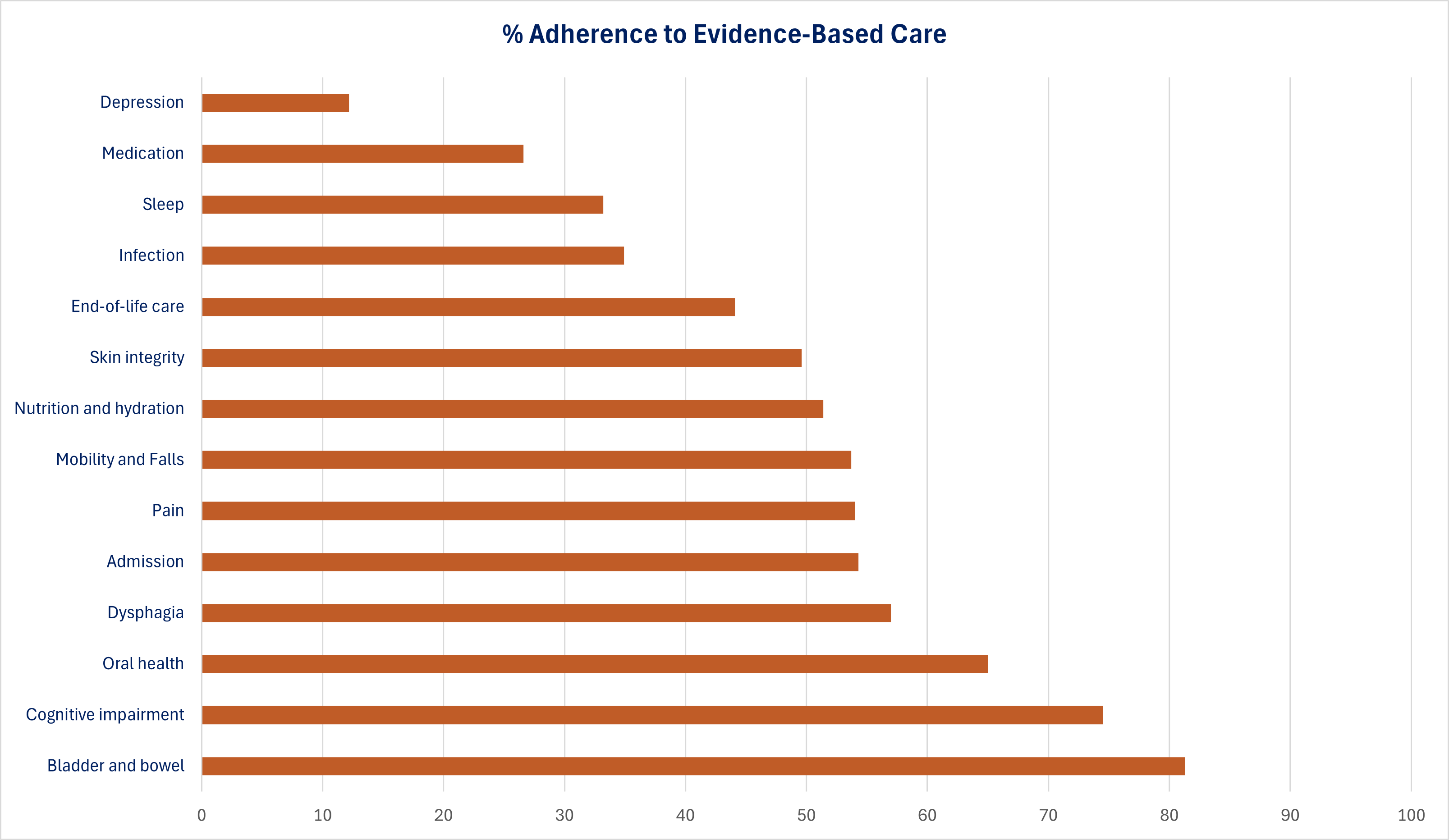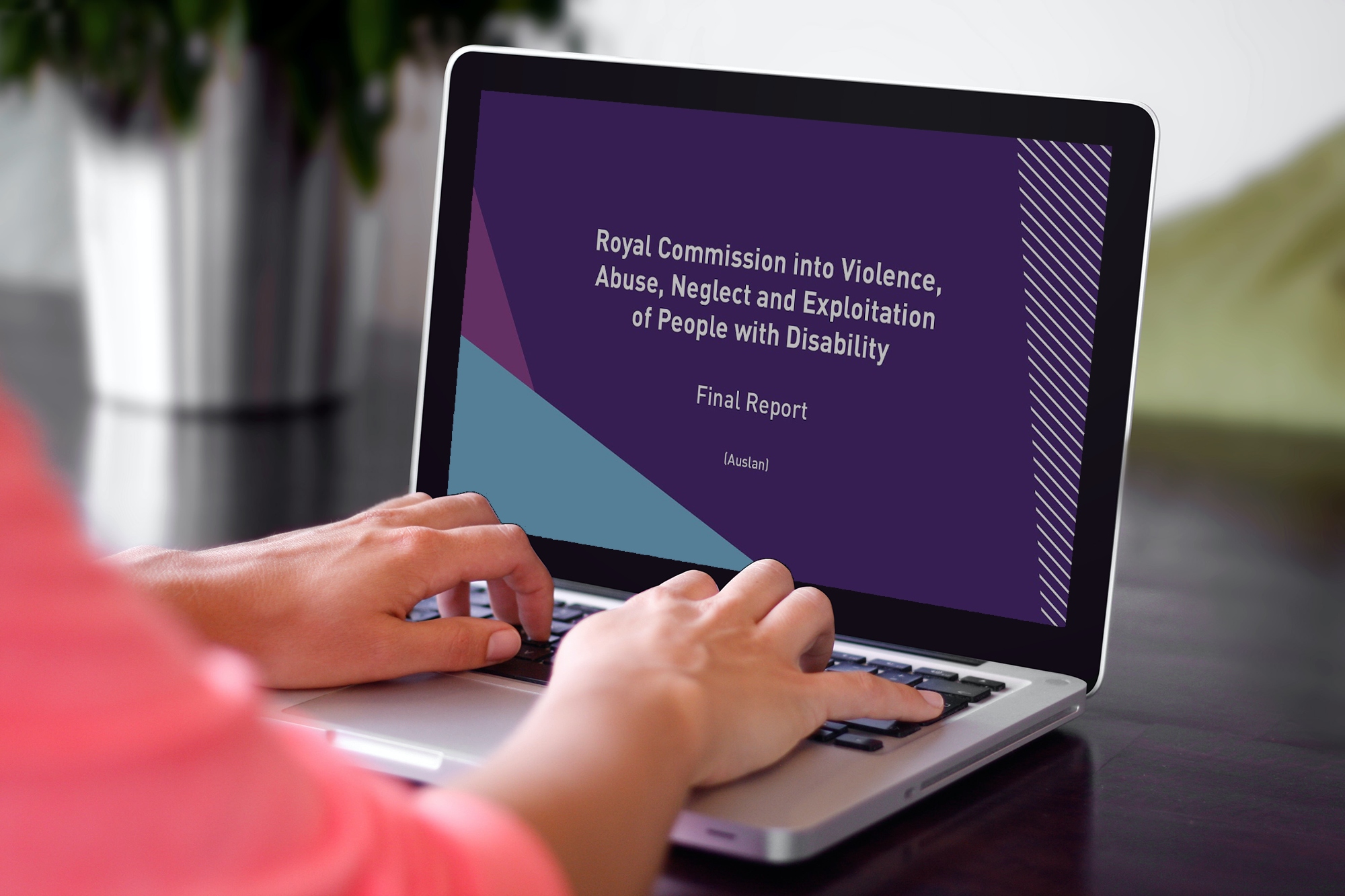The recent publication of a research study by the Australian Institute of Health Innovation highlighted some major areas of concern in the aged care sector. The study focused on the level of adherence to evidence-based care in aged care across 14 different care areas.
What is evidence-based care?
Evidence-based care (or evidence-based practice) involves integrating up-to-date, best practice research with clinical knowledge and experience, and the preferences of the older person. As research and knowledge about a specific clinical care area evolves, an organisation should be reviewing their own processes to ensure that they’re still delivering care that best addresses the needs of older people. Organisations should also ensure that they have effective processes to integrate new or revised evidence into the way they deliver services.
Some factors that may contribute to a person not receiving evidence-based care include:
- When an organisation doesn’t regularly check for the latest developments in clinical care areas;
- Using outdated, not well supported, or contraindicated evidence as a basis for care;
- Failing to adapt care practices to the needs of each older person based on their preferences; and
- Failing to implement practices that are based on the latest available evidence.
Evidence-based care in standards
The requirement to deliver evidence-based care is included in both the National Safety and Quality Health Service Standards (NSQHS) and the strengthened Aged Care Quality Standards (ACQS). Findings of the Aged Care Royal Commission recommended that:
“The aged care system should adopt evidence-based and continuous improvement strategies to allow for transparent measurement and reporting of the quality of care being delivered to older people.”
Evidence-based (or “evidence-informed”) practice is also a quality indicator of a number of the NDIS Practice Standards, such as those for:
- Quality Management;
- Responsive Support Provision; and
- Behaviour Support.
The Findings of the Research Study
The findings demonstrate that, while some areas of care have relatively high levels of adherence to an evidence-based approach to care, there are also areas that are shockingly low.
On average, the adherence rate across all indicators studied was just over half (53.2%), with a high of 81.3% for continence care, and a low of 12.2% for mental health/depression related care.

Some of these findings match recent results of the Residential Aged Care Quality Indicators from July-September 2023.
Some improvement opportunities
One area of concern is the low adherence to evidence-based practices in medication management, given the high prevalence of polypharmacy in aged care residents, with over a third of aged care residents prescribed nine or more medications.
Another area for improvement is in falls management, where the current ‘best practice’ guidelines date back to 2009. Despite a relatively higher adherence rate to evidence-based care, the trend in falls has remained steady over the past few years, with nearly a third of aged care residents experiencing a fall each quarter during that period. The steady trend reflects the need for continued work to improve knowledge and understanding of clinical care areas in order to aid improvement. New research has informed draft Updated Fall Prevention Guidelines for Residential Aged Care Services, which are currently in a consultation phase. Looking forward, hopefully the updated guidelines will drive an improvement in fall prevention when they are released, and provide a useful resource for organisations to review their falls management processes and procedures.
A statistically significant area in the recent Quality Indicators that supports the importance of evidence-based care is in continence care. Of the aged care residents who were assessed, 78% were recorded with incontinence, however, only 4% of residents were recorded as having incontinence-associated dermatitis. This indicates that the high level of adherence to evidence-based care in this area is resulting in better outcomes for older people, drastically reducing their likelihood of experiencing incontinence-related issues.
Where to for providers?
This is an opportunity for providers to reflect on their own approach to evidence-based care and practices, especially in the areas of low adherence identified in the research study. In addition, Outcome 5.5 (Clinical Safety) of the Strengthened Aged Care Quality Standards goes into greater detail about many of these areas of care. More specific requirements surrounding specific clinical care areas should act as a tool to guide organisations in providing the level of care older people require.
The Australian Commission on Safety and Quality in Healthcare has some guidance for supporting evidence-based practice, while the NDIS Quality and Safeguards Commission has released their Evidence-Informed Practice Guide, which is a helpful resource to help you consider improvements to processes and procedures.
BNG and improving care
For further assistance, we have up-to-date policies for many of the areas of care evaluated in the research study, including:
- Policy: Promoting Emotional Wellbeing in Aged Care
- Policy: Oral Health
- Policy: Nutrition, Meals and Hydration
- Policy: Continence Management
- Policy: Falls Prevention
- Policy: Pain Management
- Policy: Pressure Injuries
- Policy: Clinical Deterioration
- Policy: End of Life Care and Palliative Care
In addition, we have information sheets for some topics that provide more in-depth information in areas such as:
- Emotional Wellbeing in Aged Care
- Nutrition, Meals and Hydration
Need a refresh on clinical care areas?
Sign up to SPP to access helpful resources to improve your organisation’s care processes!

